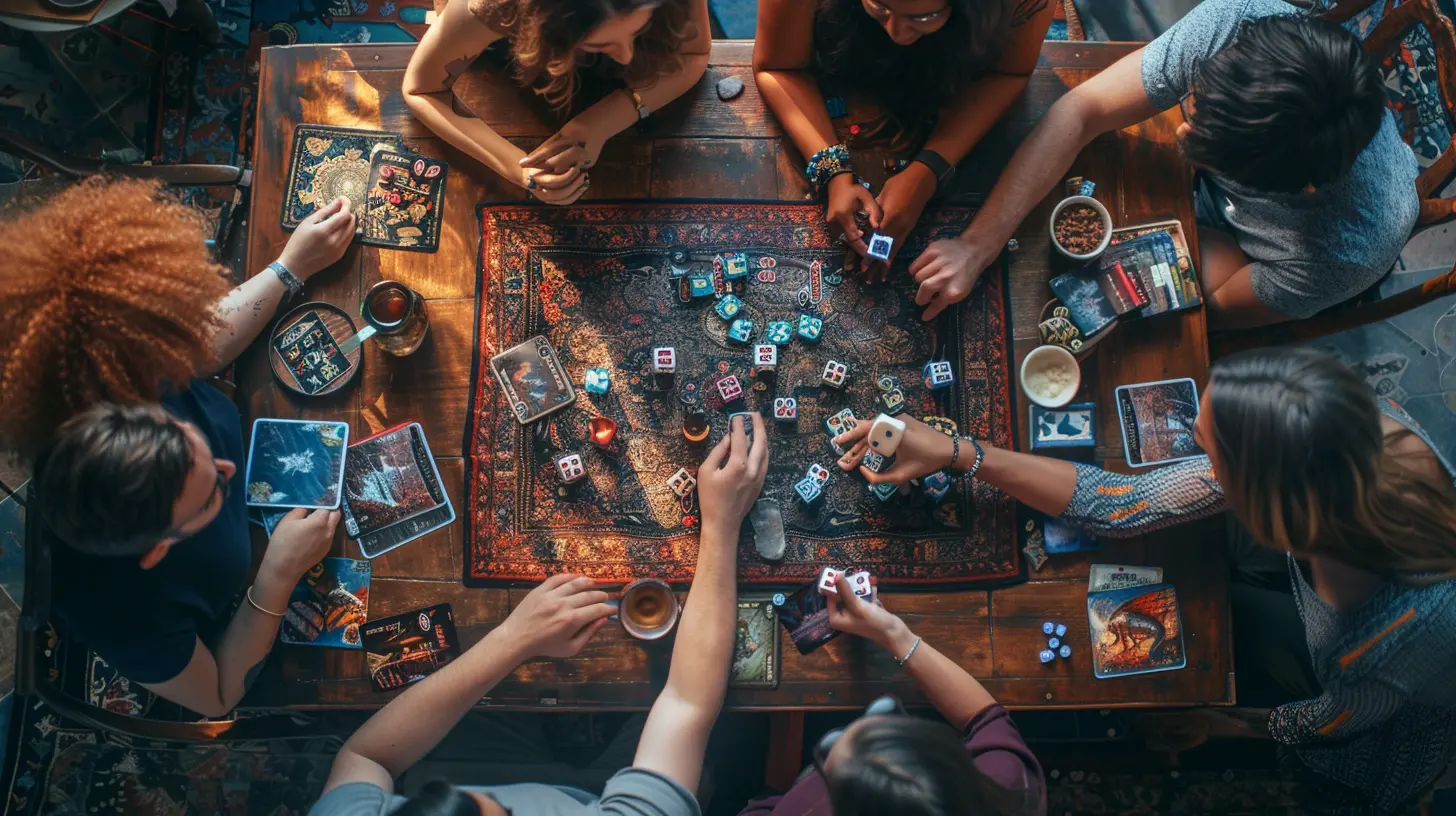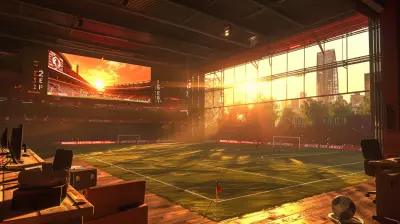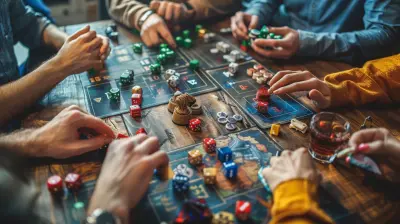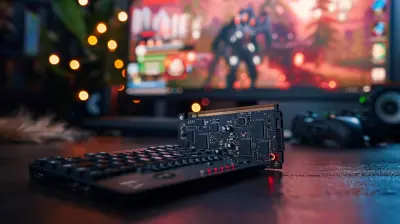20 April 2025
Have you ever found yourself smack dab in the middle of an intense multiplayer game, wondering why your team feels as disjointed as a puzzle missing its corner pieces? Yeah, we’ve all been there. Whether you’re playing an online battle arena, a survival co-op, or a tactical shooter, one thing becomes crystal clear: team composition is everything. The roles you and your teammates choose can make or break your chances of success. But why is that the case? Let’s dive in and uncover how choosing your role impacts cooperative gameplay and why getting it right can turn even the scrappiest group into a well-oiled machine.

What Are Roles in Cooperative Games?
Before we get into the nitty-gritty, let’s define what we mean by "roles." In most cooperative or team-based games, roles are essentially the responsibilities or functions that each player takes on to contribute to the team’s overall objective. Think of it like a band. You’ve got your guitarist, drummer, bassist, and vocalist. If everyone grabs a microphone and starts singing, well, you’ve got chaos instead of harmony (and probably some shattered eardrums). Roles are designed to complement each other, filling in the gaps and covering weaknesses.In gaming, you’ll generally see roles broken into categories like:
- Tanks: The ones who take on enemy fire while protecting their teammates.
- Damage Dealers (DPS): The heavy hitters who focus on taking down enemies quickly.
- Support: The lifeline of the team, offering heals, buffs, or utility.
- Hybrids/Utility: Jack-of-all-trades sorts who adapt to what the team needs.
Each role carries its weight, and neglecting one can make your team about as stable as a two-legged chair.

Why Team Composition Matters
Alright, so why is team composition a big deal? Can’t we all just pick what looks cool and cross our fingers? Sure, if you enjoy losing repeatedly. But in all seriousness, team composition is the backbone of cooperative success. Here’s why:1. Synergy Creates Efficiency
Ever heard the phrase, “The whole is greater than the sum of its parts”? That’s synergy in action. When everyone picks roles that complement one another, the team becomes a powerhouse. For example, combine a tank who can soak up damage, a DPS shredding enemies, and a support keeping everyone alive, and suddenly even the hardest challenges start to feel manageable. Neglect this balance, and it’s like trying to play basketball with four point guards and no one guarding the hoop. Good luck with that.2. Flexibility Wins Games
In most games, you’ll face unexpected challenges—boss mechanics, enemy ambushes, or even a teammate disconnecting at the worst possible moment (ugh). A well-composed team can adapt to these scenarios. A tank can hold the frontlines while everyone regroups. A healer can buy time for a comeback. When your team composition lacks flexibility? Prepare to watch everything crumble faster than a sandcastle at high tide.3. Mitigating Weaknesses
No one likes to think about the negatives, but let’s be real: Every team has weaknesses. Maybe your tank is overly aggressive, or your DPS players are glass cannons who fold under pressure. A balanced composition spreads out those vulnerabilities. It’s like building a sports car—sure, speed is awesome, but you also need working brakes and a steering wheel to actually drive it. Ignore these fundamentals, and you’re on the fast track to frustration.
Choosing Your Role: What Fits You Best?
So, how do you decide which role to take on? It’s not just about picking the character with the coolest weapon or the flashiest moves. Choosing your role requires assessing not only what the team needs but also your personal playstyle. Let’s break it down.1. The Tank: The Shield of the Team
Do you enjoy being the center of attention and jumping headfirst into danger? Tanks are your jam. Your job is to absorb damage and keep enemies focused on you instead of your squishier teammates. It’s not glamorous, but it’s essential. Tanks are like the offensive linemen in football—rarely in the spotlight but absolutely critical to success.Things to Consider: Tanks require patience, situational awareness, and a thick skin for criticism (because if your team wipes, you’re probably getting blamed).
2. The DPS: The Powerhouse
Love chasing high scores and seeing those juicy numbers pop up on the screen? That’s the DPS role in a nutshell. Damage dealers focus on quickly eliminating threats. Whether you’re sniping from a distance or hacking and slashing up close, you’re the one dishing out the pain. But remember, DPS without strategy is like a firecracker with no fuse—pointless and disappointing.Things to Consider: You’ll often be targeted by enemies, so positioning and timing are everything. Oh, and don’t forget to actually listen to your support—they’re not there to babysit you.
3. The Support: The Backbone
Are you a team player who doesn’t mind staying out of the spotlight? Support players are the unsung heroes of any game. You’re the healer keeping the tank alive, the buffer making the DPS stronger, and sometimes the strategist calling the shots. Without you, the rest of the team is toast.Things to Consider: Support can be incredibly rewarding but also thankless. If you’re the type to rage-quit when someone doesn’t appreciate your efforts, this might not be for you.
4. The Utility/Hybrid: The Wildcard
Can’t be boxed into one role? Hybrids are flexible players who can adapt to the team’s needs. Maybe you start as a DPS but switch to a healing role mid-match. Or perhaps you’re a utility specialist setting traps and controlling the battlefield. You’re like a Swiss Army knife—versatile, reliable, and always handy.Things to Consider: Hybrids require a deep understanding of the game and a willingness to fill gaps wherever needed. It’s not for the faint of heart.

The Importance of Communication and Adaptability
Even the best team composition falls flat without communication. A good tank needs to call out threats, a support needs to yell when they’re out of mana, and a DPS needs to coordinate attacks with the team. Think of it like a dance—everyone has to move in sync, or you’re stepping on toes and ruining the rhythm.And adaptability? Oh boy, that’s a game-changer. Sometimes, you need to switch roles or adjust strategies on the fly. Maybe your DPS isn’t pulling their weight, and you need to pick up the slack. Or perhaps the enemy team is countering your tank, and you need to adjust your approach. Being rigid is a one-way ticket to defeat.
The Ripple Effect of Poor Choices
Let’s talk about the elephant in the room. What happens when the team composition is downright awful? Picture this: three DPS players, one reluctant healer, and no tank. Sounds like a recipe for disaster, right? You’ll spend more time respawning than actually playing. Poor choices lead to frustration, finger-pointing, and, ultimately, a broken team dynamic. It’s like trying to bake a cake with salt instead of sugar—you’re setting yourself up for disappointment.Final Thoughts: Balance Is Key
At the end of the day, choosing your role in a cooperative game isn’t just about what feels fun for you—it’s about what’s best for the team. When everyone works together, filling in gaps and playing to their strengths, magic happens. Even the toughest challenges become surmountable when roles are balanced, communication flows, and adaptability reigns supreme.So, the next time you’re getting ready to queue up for a game, take a moment to think about your team composition. Are you filling a much-needed role, or are you creating an imbalance? Choose wisely, and you’ll be one step closer to that sweet, sweet victory screen.




Harlow Morales
Each role hides a secret power. Will you unlock the synergy, or let discord shatter your team's fate? Choose wisely.
April 24, 2025 at 4:37 PM